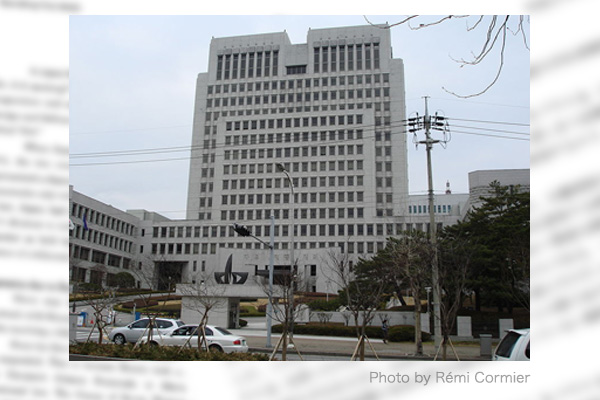On January 24, the Seoul Western District Court acquitted a former university professor accused of defamation through a remark that wartime comfort women were a kind of prostitute. In September 2019, a supporting group for former comfort women named the Korean Council for the Women Drafted for Military Sexual Slavery by Japan (now renamed the Korean Council for Justice and Remembrance) sued former Yonsei University professor Ryu Seok Chun for alleged defamation through a leaked recording of his lecture.
The trial disputed whether the following three statements constituted defamation: (1) comfort women were a type of prostitute and were not coercively recruited, (2) the supporting group has worked together with the now-dissolved pro-Pyongyang Unified Progressive Party and North Korea, and (3) the group had former comfort women make false statements about coercive recruitment. Ryu was acquitted of defamation over the first two statements, but was found guilty over the third and ordered to pay a fine of 2 million won (about $1,500).
Reference to prostitutes not constituting defamation
The ruling emphasized academic freedom, while noting that Ryu’s remarks differed from the conventional wisdom of the South Korean people. In an interview with the media after the verdict, Ryu said: “I am fortunate that I was acquitted. What bothered me the most was that the media made a big fuss about the statement that comfort women went to earn money, criticizing the statement as wrong. Still, I was acquitted. I think that’s the most important thing.” While welcoming the acquittal, he thus criticized the media. He also said he would appeal the conviction on the third statement.
In fact, the media made personal attacks on Ryu in 2019. The Hankyoreh newspaper in its editorial on September 22 criticized Ryu’s reference to prostitutes as absurd and urged him to get out of academia. The Dong-A Ilbo newspaper on September 28 reported Ryu as blaming the school and media instead of reflecting on himself.
The supporting group for former comfort women, the plaintiff, criticized the ruling as “anti-human rights and anti-historical.” Concluding public opinion represents common sense, the group said, “It is not in line with the common sense of the people to assert that statements which deny the historical facts about the victims are correct. The facts are recognized by the entire world, the United Nations and the international community.”
“Conventional wisdom” is still a thick wall
The above three points in dispute relate to the essence of the comfort women issue. Namely, they pertain to the widespread fiction that comfort women were forcibly taken by Japan, the utilization of former comfort women by the supporting group and other organizations, and the relationship between this movement and North Korea. Though finding Ryu’s reference to prostitutes as not constituting defamation, the ruling fell short of denying the conventional wisdom of Korean society that holds Japan fully responsible for the comfort women issue while remaining indifferent to the fact that North Korea and pro-Pyongyang forces are behind the issue.
In October last year, the South Korean Supreme Court acquitted Park Yu Ha, a professor emeritus at Sejong University, who had been accused by former comfort women of defamation. When observing such lawsuits occurring frequently and truth-seeking professors forced to fight at court, I am reminded that there are forces that hinder the pursuit of the truth and that the wall of “conventional wisdom” is thick.
Nobuko Araki is a Korea researcher and a member of the Planning Committee at the Japan Institute for National Fundamentals.


